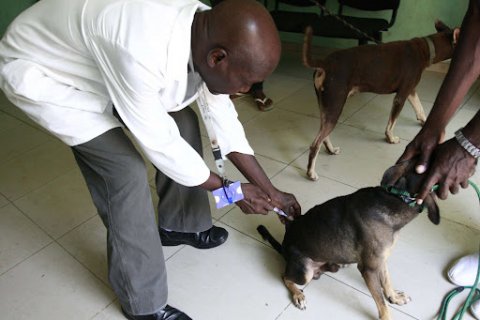According to the Secretary of State for Hospitals, Leonardo Inocêncio, the country reported 29 cases of rabies in humans and the same number of deaths between January and April 2025, a reduction of 14 compared to the same period in 2024.
“This downward trend in deaths is also due to the acquisition and distribution of anti-rabies vaccine and anti-rabies serum to all provinces, which has allowed the mortality rate to be reduced,” said the minister.
Speaking this Friday at the opening of the National Animal Vaccination Campaign against Rabies, he reported that the country recorded 171 cases of rabies and the same number of deaths in 2024, 93 fewer cases compared to 2023.
The age group most affected in the last two years was the 5 to 14 age group.
The National Animal Vaccination Campaign against Rabies, launched this Friday in the municipality of Cacuaco, in Luanda, has more than one million vaccines to immunize more than 900 animals, including dogs, cats and monkeys throughout the country.
“It is important to highlight that by vaccinating dogs and other domestic animals, we are not only protecting the animals themselves, but also interrupting the chain of transmission of rabies to people”, said the official, stressing that the reduction in cases of bites by potentially infected animals means fewer people are exposed.
The campaign, which runs until May 12, aims to achieve vaccination coverage in animals that “allows the country to advance in the National Strategy for the Elimination of Rabies as a public health problem”, he noted.
Leonardo Inocêncio considered, on the other hand, that the direct relationship between animal vaccination and human health translates into a positive impact on the health system, families and communities.
“This is a preventative measure that saves lives. It is important to emphasize that by protecting animals we are protecting people, in line with the principle of ‘One Health’, which recognizes that human, animal and environmental health are inseparable,” he noted. Rabies control “requires a multisectoral and multidisciplinary approach,” in which ministerial departments, churches, educational institutions, professional organizations, non-governmental and community-based organizations, as well as the community at large, have responsibilities, he concluded.







